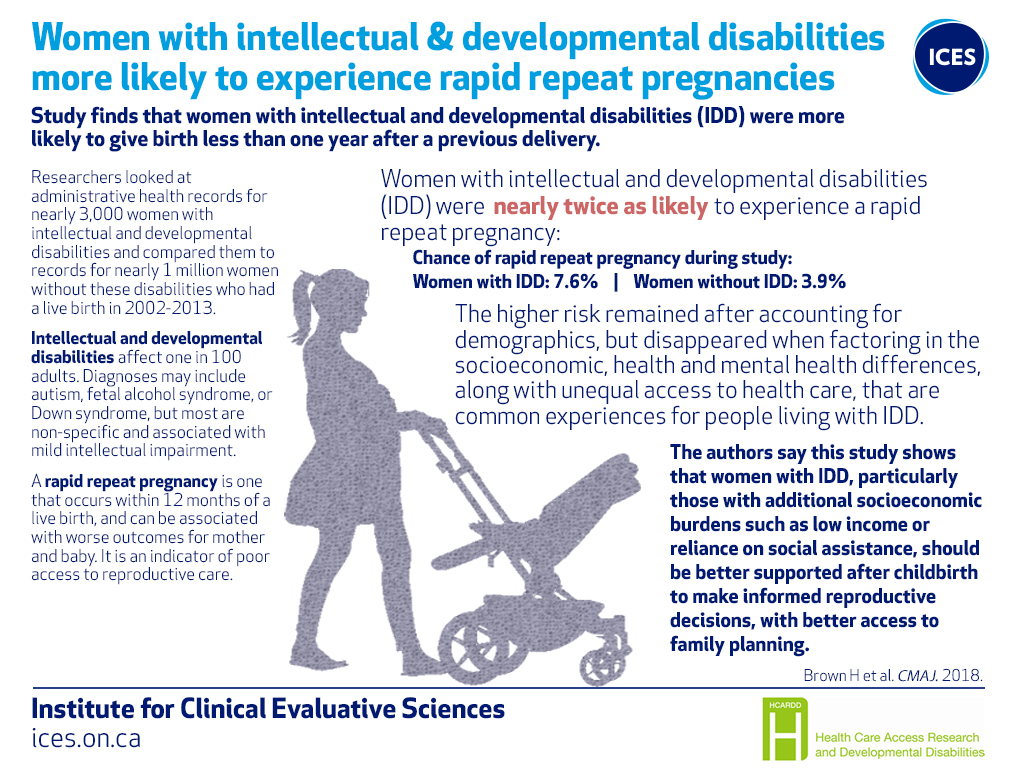Canadian researchers have found that women with developmental and intellectual disabilities have close to double the risk of having another child within 12 months of delivering than women without these disabilities. The study was published in CMAJ.
Rapid Repeat Pregnancies (RRPs) have been linked with adverse pregnancy outcomes including low birth weight, pre-term delivery, and stillbirths. For the mother, RRPs can be indicative of disadvantages like poor access to reproductive healthcare, particularly contraception.
Closely spaced pregnancies are thought to be risky because the mother’s body has not had enough time to fully recover. Nutrient deficits – particularly with iron and folate – can occur, endangering the health of the next child and potentially the mother as well.
Around one in 100 adults live with an intellectual or developmental disability such as autism, Down syndrome, or fetal alcohol syndrome, and these conditions can entail major social and practical limitations.
Scope of Healthcare and Other Supports are Key
Researchers studied data on 2,855 women with intellectual or developmental disabilities and circa 923,000 women without, all of whom gave birth between 2002 and 2013. The RRP risk factor for the disabled group was 7.6%, as opposed to 3.9% for the non-disabled participants.
The risk factor was assessed both before and after controlling for important markers such as health, healthcare, social, and demographic factors which could explain the differences between the groups.
What they found was that the risk remained elevated when demographics were accounted for, but not so with the other three factors. This means that health, healthcare, and social factors may explain the discrepancy between the two groups, and addressing them could help narrow the gap.
“Women with intellectual and developmental disabilities are more likely than those without such disabilities to be young and disadvantaged in each marker of social, health, and healthcare disparities,” says Hillary Brown, lead author. “They experience high rates of poverty and chronic physical and mental illness, and have poor access to primary care.”
Ultimately, this means that while education and information about contraception and planned pregnancies are important, tackling socio-economic issues with this marginalized group will be key to resolving the issue.
“This study shows that current efforts to promote reproductive health might not be reaching women with intellectual and developmental disabilities and that there is a lot more we can do to educate and support these women in relation to pregnancy planning and contraception,” adds Brown.









































